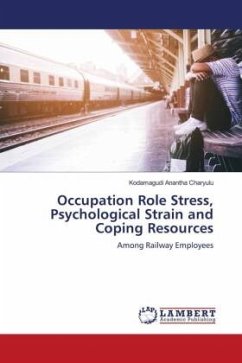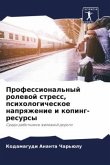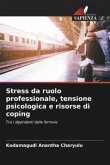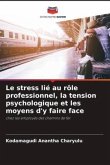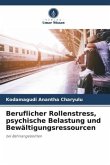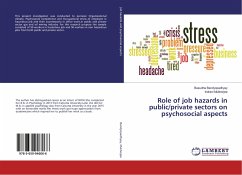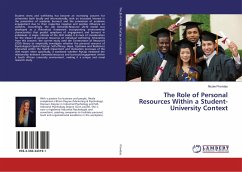South Central Railway was formed on 02-10-1966 as Secunderabad headquarters, when Hubli and Vijayawada Divisions of Southern Railway and Sholapur and Secunderabad Divisions of Central Railway were carved out and merged into a new Zone. Subsequently, Guntakal Division of Southern Railway was merged with South Central Railway on 02-10-1977 and Sholapur Division was remerged with Central Railway. Secunderabad Division was split into two Divisions viz. Secunderabad and Hyderabad on 17-02-1978. Occupational stress refers as the experience of unpleasant, negative emotions such as tension, anxiety, frustration, anger and depression resulting from aspects of work. The primary difference between occupational stress and many other forms of stress is the nature of the stressors and their interaction with the overall stress process. Psychological strains occur in form of the value conflict, relative deprivation, unrealized aspiration, lack of coping skills, vocational strain, lack of interest in work, physical strain and inter personal strain. Coping is extending conscious efforts to solve personal and interpersonal problems and seeking to master, minimize or tolerate stress or strain.

